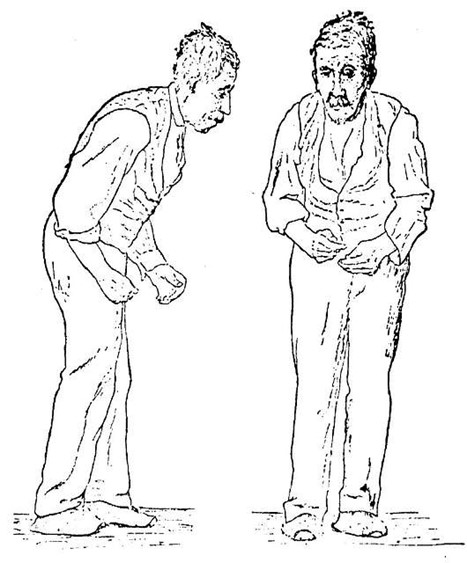How Microbiota Therapy is Revolutionizing Ulcerative Colitis and Crohn’s Disease Treatment
The human gut is home to trillions of microorganisms, collectively known as the gut microbiota, which play an essential role in digestion, immunity, and overall health. In recent years, growing evidence has highlighted the importance of gut microbiota in chronic inflammatory conditions, particularly inflammatory bowel diseases (IBD) like Ulcerative Colitis (UC) and Crohn’s Disease (CD). Microbiota therapy, including fecal microbiota transplantation (FMT) and probiotics, is emerging as a groundbreaking treatment approach for these conditions, offering new hope to millions of patients worldwide.
The Gut Microbiota and Its Role in IBD
The gut microbiota is a complex ecosystem composed of bacteria, fungi, viruses, and other microorganisms. In a healthy gut, these microorganisms exist in a balanced state, helping regulate immune function and maintaining the integrity of the gut lining. In individuals with UC or CD, this balance is disrupted, a phenomenon known as dysbiosis. Dysbiosis is thought to contribute to the chronic inflammation seen in IBD by allowing harmful bacteria to proliferate and trigger immune responses that damage the intestinal lining.
For years, treatments for IBD focused primarily on controlling inflammation through medications like:
- corticosteroids
- biologics
- immunosuppressants
While these therapies can be effective, they often come with significant side effects and do not address the root cause of dysbiosis. This is where microbiota therapy steps in.
Fecal Microbiota Transplantation (FMT): A New Frontier
Fecal Microbiota Transplantation (FMT) involves transferring stool from a healthy donor into the gut of a patient with IBD to restore a balanced microbiota. By introducing beneficial bacteria from a healthy individual, FMT aims to correct dysbiosis and reduce inflammation.
Several studies have shown promising results, especially in treating Ulcerative Colitis. In a landmark clinical trial published in The Lancet, patients with UC who received FMT were more likely to achieve remission compared to those who received a placebo. Additionally, FMT has shown potential in reducing the need for corticosteroids and other medications in UC patients.
However, the effectiveness of FMT for Crohn’s Disease is still under investigation. While some studies have shown positive outcomes, others have been less conclusive. Researchers are working to refine FMT protocols to better suit the unique microbial environments of UC and CD patients.
Probiotics and Prebiotics: Supporting the Gut
In addition to FMT, probiotics—live microorganisms that confer health benefits—are gaining traction as a treatment for IBD. Certain strains of Lactobacillus and Bifidobacterium have been shown to reduce inflammation and promote healing in the gut lining of UC and CD patients. Probiotics may help restore microbial balance, especially when taken in conjunction with conventional therapies.
Prebiotics, which are dietary fibers that feed beneficial gut bacteria, can also enhance the effects of probiotics. Prebiotic-rich foods, such as:
- bananas
- garlic
- onions
may support gut health by encouraging the growth of anti-inflammatory bacteria.
Personalized Microbiota Therapy: The Future of IBD TreatmentOne of the most exciting advancements in microbiota therapy is the potential for personalized treatment plans. Researchers are exploring how each individual’s unique microbiota composition can be analyzed to develop tailored treatments. This approach, often called precision medicine, could revolutionize IBD management by offering more targeted and effective therapies.
For example, future treatments might involve analyzing a patient’s microbiota profile to determine the best donor match for FMT or identifying specific probiotic strains that are most likely to benefit that individual. This shift toward personalized microbiota therapy could dramatically improve treatment outcomes and reduce reliance on broad-spectrum medications with harsh side effects.
Challenges and Considerations
While microbiota therapy holds great promise, it is not without challenges. One major concern is the risk of transmitting infections or harmful bacteria through FMT. To mitigate this risk, strict screening protocols for donors are essential. Additionally, the long-term effects of altering a patient’s microbiota are not yet fully understood.
Regulatory hurdles also exist. In some countries, FMT is classified as a biological product, making it subject to stringent approval processes. The development of standardized FMT products and probiotic formulations is necessary to ensure safety and efficacy.
See the full scientific article from Everyday Health.
Microbiota therapy is revolutionizing the treatment landscape for Ulcerative Colitis and Crohn’s Disease by addressing the root cause of dysbiosis. Whether through FMT, probiotics, or personalized treatments, these innovative approaches offer new hope for patients struggling with chronic inflammation and the debilitating symptoms of IBD.
Enhancing our daily routine with Florassist GI supplements can significantly contribute to our well-being. At Asher Longevity Institute, we provide access to this exceptional supplement. Florassist GI supports the growth of beneficial bacteria, optimizes digestion, and effectively eliminates harmful bacteria in the gut.




